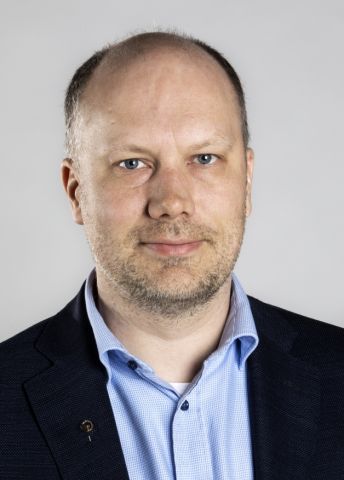
Program for mathematics 2023
Grant to recruit an international researcher
for a postdoctoral position
Professor Axel Målqvist
Department of Mathematical Sciences at Chalmers University of Technology and University of Gothenburg
Grant to recruit an international researcher
for a postdoctoral position
Professor Axel Målqvist
Department of Mathematical Sciences at Chalmers University of Technology and University of Gothenburg
New computational methods for new materials
Professor Axel Målqvist will receive funding from the Knut and Alice Wallenberg Foundation to recruit an international researcher for a postdoctoral position at the Department of Mathematical Sciences at Chalmers University of Technology and the University of Gothenburg.
Alongside theory and experiments, computation is a vital element of natural science research. Many phenomena are described using differential equations that require huge computer power and efficient algorithms if they are to be solved. Computational mathematics involves the development and analysis of these algorithms.
The purpose of the planned project is to develop numerical methods for solving partial differential equations in materials with complex geometry. These materials could include composites in vehicles, wood composites for decking or the paper in packaging – these are all examples of the heterogeneous materials around us. Calculating their properties, such as the elasticity of materials with fibre structures or flows in porous materials, is a great challenge in computer simulations. Numerical methods must be able to deal with many size scales, as well as different mathematical models on these scales.
Simplification is necessary. One possibility is to replace the complex structure with an efficient homogenized model. However, to investigate the material in more detail, a model that contains essential information also at small scales is needed. Complex materials can often behave as homogeneous materials at coarse scales, but the complicated geometric structure starts to matter at a critical point. This transition needs to be given a mathematical shape if it is to be included in the algorithms – the mathematical analysis and development of computational algorithms go hand in hand. The project aims to find new and efficient algorithms that are adapted to contemporary complex materials.